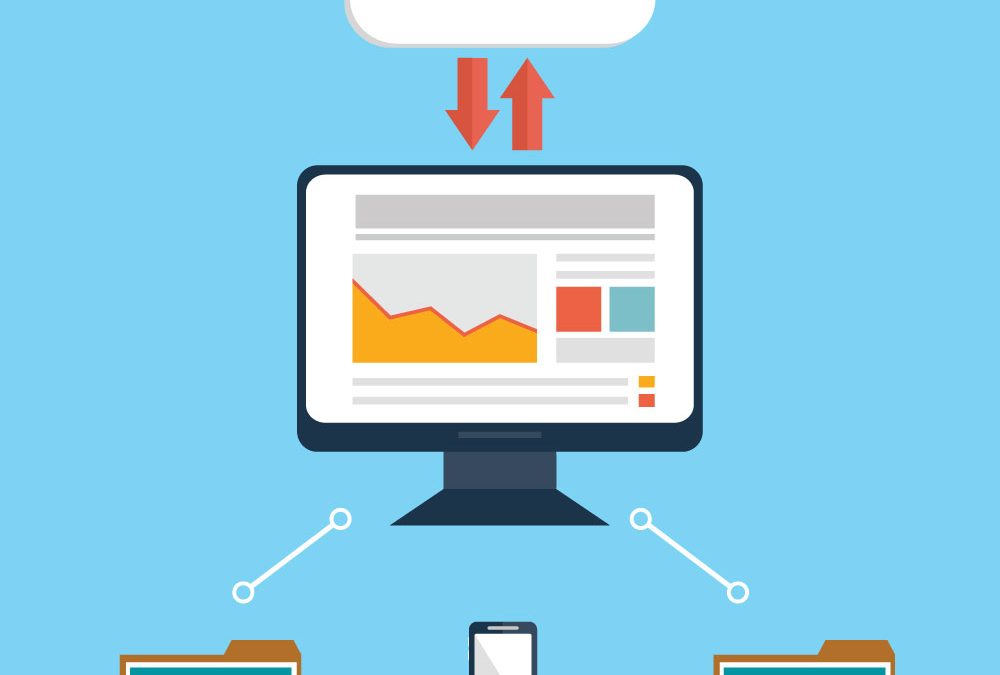
May 8, 2018 | SMB Technology, SMB Technology, SMB Technology, SMB Technology, Technology News
Migration to the cloud has become more common over the years, with more and more companies moving to the Cloud each day. Benefits of the Cloud extend to many if not all business systems—Communication and Collaboration, Email, file sharing and data storage to name a few. Read on to learn more about how companies, especially small to medium-sized businesses, are using the public cloud for their operations. Benefits and Characteristics of Public Cloud Overall, the public cloud offers a less-expensive alternative to private cloud resources, with many of the benefits. Like the private cloud, the public cloud enables businesses to avoid investing in the purchase and maintenance of costly hardware, since the underlying infrastructure is already available via the web. Capital expenses can then be converted to operating expenses. What’s more, the cloud is scalable and elastic, giving enterprises the ability to use more or less of the total environment according to different web traffic to their business at different times. Public cloud environments are ready to use, with required resources built in. Other characteristics named by the U.S. National Institute of Standards and Technology include the public cloud being open to more users and more enterprises. Finally, public cloud offers network access everywhere, since the data is accessible via the internet. Considering Public Versus Private Cloud As great as the public cloud is, it may not be right for your particular enterprise. Compliance with regulatory standards like Sarbanes Oxley, PCI and HIPAA necessitates confidentiality of information and restrictions on access to it. Companies that need to protect their customers’ and clients’ information will find a private cloud environment...

Apr 17, 2018 | SMB Technology, SMB Technology, SMB Technology, SMB Technology, Technology News
With more and more businesses putting their data in the Cloud, most agree the benefits of doing so outweigh the risks. However, there are still risks to consider, both before and after selecting a Cloud Service Provider. Read on to find out about these as well as to learn how to manage security in the Cloud. Making Your Business Cloud-Ready According to a Computing Technology Industry Association (CompTIA) report, “Assessing the Cloud Security Landscape,” 85% of business and IT professionals are confident in their Cloud Service Provider. Cloud computing is certain to grow even more in coming years. What cloud security concerns are top of mind for business owners and IT professionals? What do they need to consider before migrating to the Cloud? Three of the key concerns business owners have are about business downtime and disaster recovery, loss or exposure of data when it migrates to the cloud, and the safety of data, through encryption, when the data is in motion and at rest. Other concerns include the physical location of data centers and shared technology concerns in multi-tenant environment. In spite of these concerns, only 3 in 10 business owners do a comprehensive evaluation, according to CompTIA. Questions to Ask Your Cloud Service Provider Before selecting a Cloud Service Provider, ask yourself and the potential provider some important questions. First, should all of your data be in the cloud? If you are responsible for compliance with regulatory standards, or if your data is proprietary or competitive, the cloud might not be the right place for the more sensitive information. Be sure to have a solid IT...

Feb 6, 2018 | SMB Technology, SMB Technology, SMB Technology, SMB Technology, Technology News
The time may be right for your business to move to the Cloud. With its many advantages, including cost savings, security, and flexibility, cloud computing also gives businesses a competitive advantage, allowing employees to work anytime, anywhere. According to an article by Forbes, the trends indicate more and more cloud usage, with an increase from 19% to 57% in 2016 and 2017. By the end of 2018, 80% of all IT budgets will be dedicated to the Cloud. According to the ninth annual CompTIA Security Trends Study, more than 59% reported moderate to heavy usage, and nearly three-quarters have confidence in providers’ ability to produce a secure cloud environment. Benefits of Moving to the Cloud Why move to the Cloud? One reason businesses migrate is being able to work across multiple devices including mobile, desktop and laptop computers. Cloud computing is scalable and can handle extra demand as your business grows. Not only that, but more employees work remotely, and Cloud computing enables teleworkers to access the company’s cloud-based systems when working remotely. Lastly, moving to the Cloud can, in many cases, convert the capital expense (CAPEX) of hardware and infrastructure to a predictable operating expense(OPEX). Efficiencies of Cloud Computing Predictability of cost is one key reason businesses make such a strategic decision. With Software as a Service (SaaS) and Infrastructure as a Service (IaaS), businesses can eliminate the up-front costs of hardware and systems updates, and phase out aging hardware. While the business will need to plan for customization, migration, and integration, Cloud computing allows customers to pay a predictable cost for the resources they use. What...

Jan 16, 2018 | SMB Technology, SMB Technology, SMB Technology, SMB Technology, Technology News
Most businesses today have adopted some form of Cloud Computing and Software as a Service (SaaS) to run their business. According to a recent article by Forrester Research,“SaaS Improves Business Results Due To Greater Innovation and Agility — And Is Increasingly The Foundation for Business Opportunities.” Rather than investing up front in costly infrastructure, implementation and configuration, Cloud Computing using Software as a Service provides an economical and turnkey approach to access the latest technology at an affordable price. Here are some examples. Cloud Computing to Improve the Customer Experience Call Center, Chat, Unified Communications, VoiP and other customer-facing technologies can be rapidly deployed within your business using the SaaS model. Cloud Computing provides flexible deployment options based on your needs and an economical subscription approach instead of an upfront Capital Expense (CAPEX). Make sure your network and infrastructure is ready to handle the additional load that comes with increased Voice and Data traffic associated with these solutions. Cloud Backup to Protect Your Business Another popular use of Cloud Technology is for data protection in the form of Cloud Backup. Using Cloud Backup rather than antiquated tape or on-premise storage gives added protection and rapid recovery when things go wrong. What’s more, many Cloud suppliers of SaaS solutions include backup capability within their application so you won’t need to worry about business disruption in the case of a failure. Hosted Business Applications There is an ever-widening range of business applications including CRM, Accounting, HR, Email and more. You may be using these SaaS applications in your business and taking advantage of working anywhere and on any device (mobile, tablet...

Nov 7, 2017 | SMB Technology, SMB Technology, SMB Technology, SMB Technology, Technology News
According to technology research firm Gartner Group, technology spending is expected to grow to $3.7 Trillion dollars in 2018. Communications Services ($1.387 billion) and IT Services ($931 billion) make up the majority of spending. In contrast, Enterprise Software and Data Center Systems are the smallest categories of spending expected for next year. Shifts in IT spending from Data Centric to Cloud Computing change the landscape for buyers, vendors and technology solution providers alike. Here are top Technology Trends you will hear about in 2018. Cybersecurity 2017 was a year full of data breaches and ransomware. According to a 2017 Cost of Data Breach Study by the Ponemon institute, the average cost of a data breach in 2017 was $141 per record lost. Consider how many customer, prospect, employee, member or supplier records you may have within your organization. With the risks so high, expect Cybersecurity to be top of the list of Technology Trends for most companies next year. Cloud Computing According to Forbes, 80% of IT budgets will be committed to the Cloud. Software as a Service (SaaS) solutions will help line-of-business managers from Sales, Marketing, HR and Finance become more productive. Communications and Collaboration applications including Email, VoIP and Web conferencing solutions will connect employees across companies and supply chains. Infrastructure as a Service (IaaS) will host a range of solutions including websites, online backup and more. The utility model, or paying for usage, appeals to businesses replacing technology capital expense (CapEx) for subscription-based operating expense. Managed Services As the “everything as a service” model gains in popularity, more companies will adopt fixed- priced managed services contracts....






